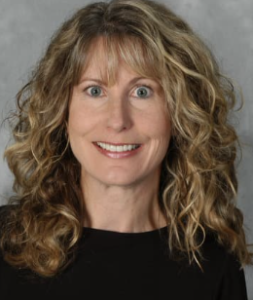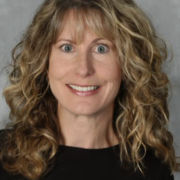It All Starts With a Welcoming Admissions Team
 A warm familial setting, comprehensive levels of care leading to a path of self-reliance, expert staff to improve diagnoses and treatment plans, and community engagement for clients—these are the hallmarks of the Warner model utilized at Colorado Recovery.
A warm familial setting, comprehensive levels of care leading to a path of self-reliance, expert staff to improve diagnoses and treatment plans, and community engagement for clients—these are the hallmarks of the Warner model utilized at Colorado Recovery.
And that warm familial setting starts right at the admissions process. “We carry that welcoming family feel, including during the initial call,” says admissions coordinator Julie Owen, MA. The team at Colorado Recovery treats every client as if they were their next of kin, with respect, compassion, and optimism.
“One of our strengths is listening skills,” says Owen. “Our first question is usually ‘What made you reach out to us today?’ What’s been going on with your friend, family member, or yourself? You will have somebody on the phone who says ‘I hear you, that sounds like it’s been challenging.’ and ‘let me tell you how I can help you.’”
The flexible treatment model at Colorado Recovery utilizes a range of programs specializing in working with people for whom mental illness is affecting their lives in a negative way.
“All our programs have the end goal of our clients becoming stable, becoming independent, developing skills that help them work with the issues they are facing, so they can live independent and successful lives,” explains Owen. “We have had many clients see that come to fruition. Many have jobs and their own apartments. Many come back to visit and touch base and it’s always great to see them.”
During the admissions process, clients learn about our recovery model and our dynamic levels of care. The admissions team can competently explain the different options, so clients get the help that’s right for them. The residential level, called Balsam House, where the focus is on stabilization and looking at medication strategy, is the highest level of care. Balsam House is staffed 24 hours a day, 7 days a week, by skilled professional staff who provide a full range of psychiatric services and are able to respond promptly to the needs of each resident.
After stabilization clients may step down to the middle level of care called Transitional Living—four townhomes connected via their backyards. The focus at this level is on connection. Colorado Recovery’s treatment environment is open-door, non-institutional, non-coercive, pleasant, and inviting because we recognize our clients share with everybody a need for a sense of community, meaning in life, and self-respect. Clients can also be directly admitted to Transitional Living if their diagnosis allows it.
“Connecting with others experiencing something similar is very powerful and plays a big role in long-term recovery success,” says Owen. “In transitional living, we focus a lot on life skills: learning to do the laundry, learning to do a grocery list, go shopping, and cook meals; learning to pay the bills on time, going to appointments without being prompted. All those skills become so very important when someone is living independently.”
Once somebody is ready to step down from transitional, they’re ready to get by on their own, maybe live in their own home, they most likely have a job at this point. They can also step down to our outpatient level of care. We have a number of outpatient programs, the one most clients step down to is the intensive outpatient program (IOP) which meets three days a week. This level of care is also open for direct admission to those who may be ready to begin their recovery at that level, or for those stepping down from another program.
This highly flexible umbrella of programs is able to address the needs of clients on an individual basis and the level of care can easily be adjusted according to their progress. “We are quite flexible depending on where the person is,” says Peggy Caspari, MA, LPC, RN, Colorado Recovery’s executive director. “This flexibility is really empowering clients which is our core philosophy. We want to do what’s in their best interest and meet them where they are in their recovery.”
The mission of Colorado Recovery is to help adults with serious mental health issues such as psychotic disorders or severe depression stabilize their condition, minimize symptoms, improve functioning, and enhance each person’s social inclusion, quality of life, and sense of meaning in life. Healing, inclusion, and client empowerment are at the core of our treatment philosophy and it all starts with your first chat with the admissions team.
If you have questions about our recovery model or our services to treat schizophrenia, bipolar disorder, and similar mental illnesses, call us at 720-218-4068 to discuss treatment options for you or the person you would like to help.





